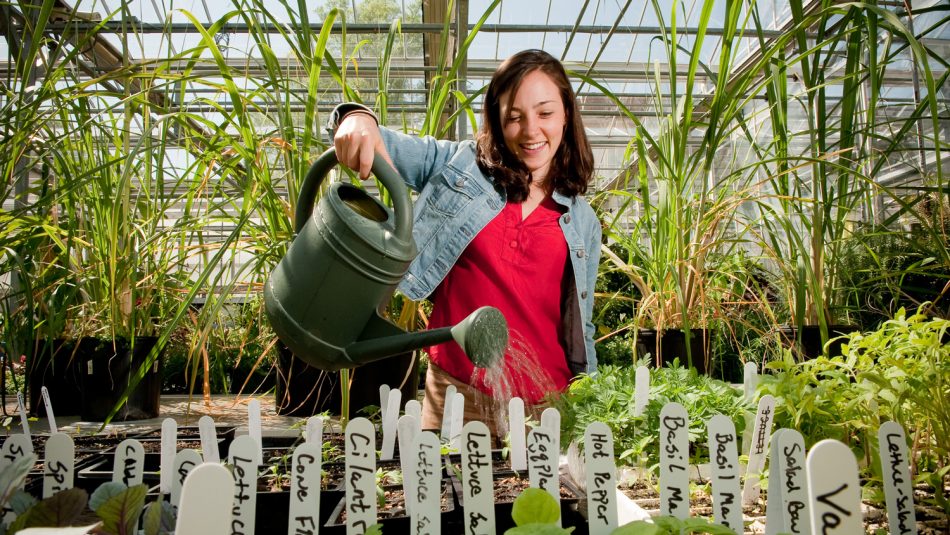Emerging Plant Disease and Global Food Security Anna Whitfield
Professor, Entomology & Plant Pathology
Anna Whitfield joined NC State in 2017 as a Chancellor’s Faculty Excellence Program cluster hire in Emerging Plant Diseases and Global Food Security. Whitfield, a professor of entomology and plant pathology, is known internationally for her work on plant-virus-vector interactions. Her research revealed the events and molecular interactions leading to virus acquisition and transmission by arthropod vectors. The long-term goal of her research is to develop biologically-based strategies for controlling viruses and arthropod vectors. Whitfield’s research scholarship around virus-vector relationships is enabling development of innovative strategies that disrupt the cycle of disease in the field, e.g. blocking insect acquisition of plant viruses through manipulation of viral protein-insect receptor interactions and using RNAi to control insect vectors by knocking out essential genes. At NC State, Whitfield will continue her work with emerging viruses and vectors that threaten food security and collaborate with team members to control other plant pathogens.
Whitfield studied entomology and plant pathology as a graduate student at the University of California-Davis, where she received her Master of Science degree, and at the University of Wisconsin, where she received her doctoral degree. Previously, Whitfield was a professor of plant pathology at Kansas State University. She received a National Science Foundation (NSF) Faculty Early Career Development Award for her work addressing the molecular mechanisms of virus-vector interactions. This project focused on arthropod vectors that play an essential role in dissemination of viruses that cause diseases in plants and integrated project findings and approaches into educational resources for students and the general public. Her lab has been funded by diverse agencies and groups including NSF, USDA-National Institute of Food and Agriculture, Defense Advanced Research Projects Agency, commodity boards and private industry partners. Her contributions to teaching and mentoring of graduate students led to her receiving the KSU College of Agriculture Excellence in Graduate Teaching Award in 2014. Her contributions to increasing diversity in the sciences were recently recognized with the 2016 Diversity Award from Kansas State University College of Agriculture, and the Sigma Xi Kansas State University 2016 Outstanding Scientist Award. In 2017, she received the Syngenta award from the American Phytopathological Society for her research and teaching accomplishments.

